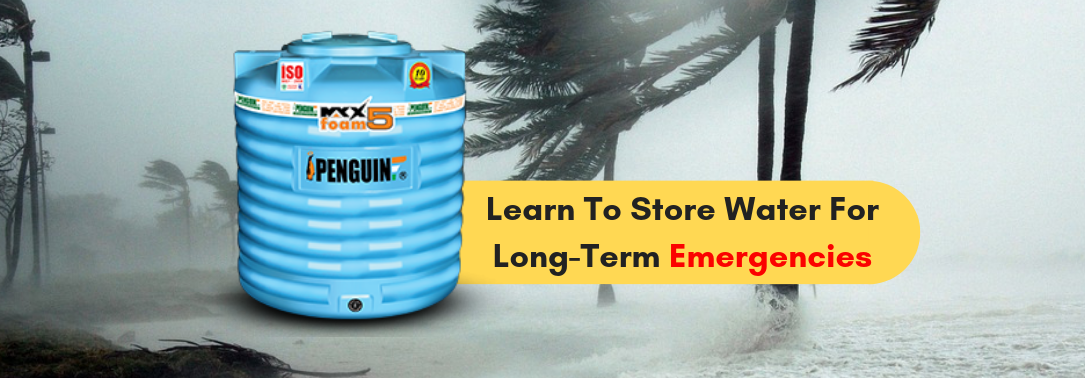Learn To Store Water For Long-Term Emergencies
- May 17, 2019
- Posted by: ptbloguser
- Category: Plastic Water Storage Tank

Our country’s eastern coast just got hit by the extremely severe cyclonic storm named ‘FANI’. It was the strongest tropical cyclone to strike the Indian state of Odisha after 2013. Some parts of West Bengal also got affected by this gigantic cyclone. However, Odisha suffered major damage and the state is still recovering from the after-effects of FANI. Several residential and commercial buildings were damaged followed by power cuts and limited or no water supply. Did you have enough water at home to last until the water came back? In times of long term emergencies, the only thing more important than food is water. This blog will focus on how to perfectly store water for long term emergencies and save your family from water shortage problems.
-
First, you need to decide how much water needs to be stored depending upon the number of family members. On an average, more than five litres of water is required for one person on a daily basis. Based on these, try to store at least two weeks of water supply for your family.
-
Select food grade containers to store water such as plastic food or beverage containers that are BPA free and manufactured using high-quality Low Linear Density Polyethylene (LLDPE) material. Penguin plastic water storage tanks are manufactured using these materials in West Bengal. Make sure not to reuse the containers that held beverages before as their residue encourages bacterial growth.
Clean the containers thoroughly with soap and warm water before filling them. Make sure to disinfect the water by either boiling or filtering it before storing. Try not to touch the inside of the container with hands to avoid contamination. Label the container with the purpose of its use such as drinking water and the date of bottling it. Store in a cool dark place away from direct sunlight.
Keep a regular check on the water every time you use to understand if you have enough water left or not. You can repeat the process if the water supply is still available to avoid any further water shortage issues.
It is important to stay safe at the time of natural calamities. During these times, there remains a high chance of water contamination. Therefore, avoid using water from an unknown source to protect yourself from water-borne diseases. Stay safe and assure to have a water storage plan in place to provide safe water to your family in times of need. You will be glad you did!
